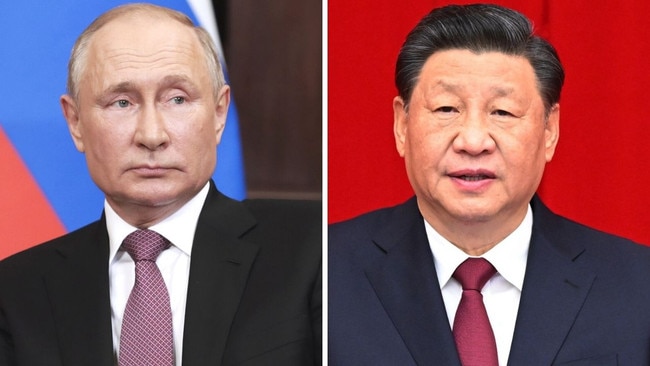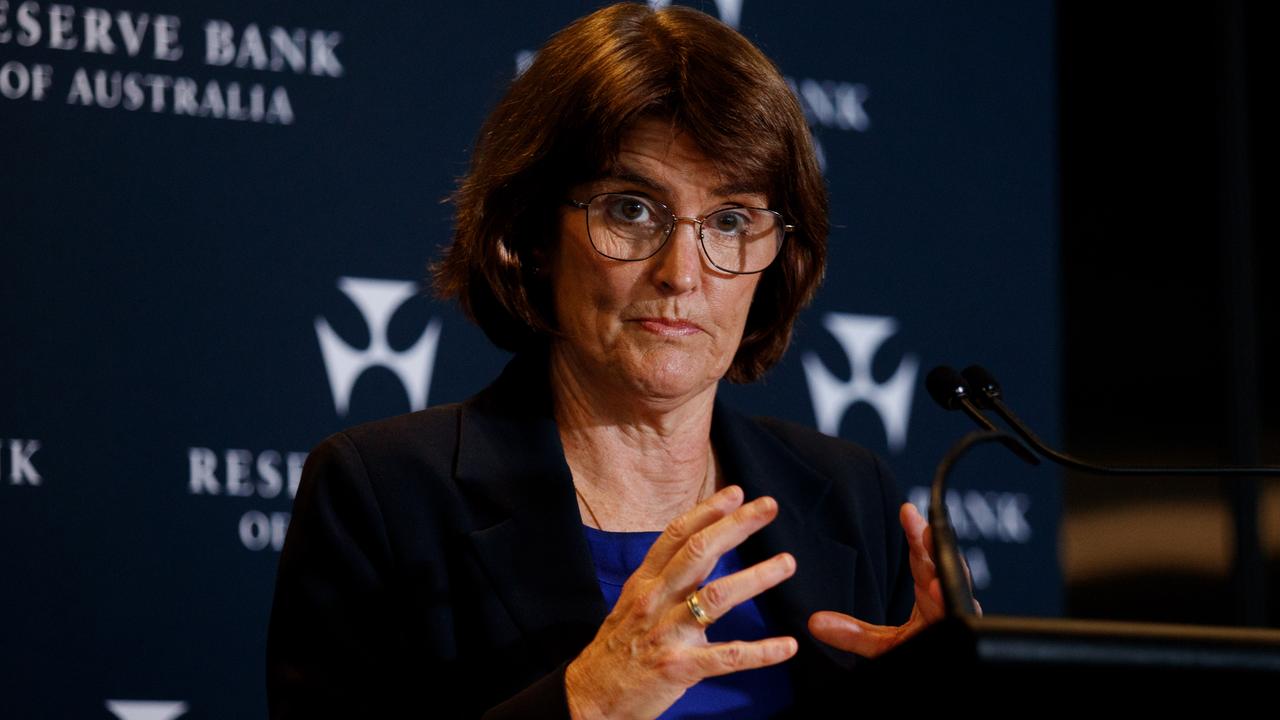A hard-headed guide to deterring Russia and China

Further, there is a growing consensus that China’s emergence as the foremost strategic competitor to the U.S. necessitates a renewed focus on the Indo-Pacific. Voices on the left and right question why America should care about Vladimir Putin’s latest adventurism and why we should commit our prestige, diplomatic capital, military sales and economic wellbeing to stop him.
Our view is that Washington should take appropriate action to prevent Moscow from subjugating Ukraine. America can’t simply look the other way at the invasion of a sovereign European nation by one of our two great geopolitical adversaries.
Such a move would undermine the post-1945 world order underwritten by U.S. power and revive the dangerous practice of territorial gain by conquest. Rank appeasement of Russia would undermine the confidence of America’s frontline allies in the Indo-Pacific as well as Eastern Europe.

U.S. steadfastness against Russian aggression isn’t about perpetuating the “rules-based order” or other slogans of Davos and Munich. It is required because America’s adversaries are constantly monitoring our actions to determine where they can advance. The U.S. withdrawal from Vietnam preceded the Soviet invasion of Afghanistan, the Iran hostage crisis, and the global adventurism of the Soviet Union and Cuba in the 1970s and early 1980s. Last year’s Afghanistan debacle appears to have emboldened Russia, China and Iran.
Beijing’s increased aggressiveness toward Taiwan has led some commentators to argue that we should ignore Mr. Putin’s Ukraine gambit and focus solely on China. While this sentiment is understandable, it misses the point: Beijing is watching how Washington responds to Moscow as it gauges what to do next. If Russia faces a determined insurgency supported by the West, finds its economy shut off from Europe, watches its oligarchs’ assets frozen and tied up worldwide and is bordered by a united and strong North Atlantic Treaty Organisation, China will surely think twice before attempting to conquer Taiwan.
To deter Russia and China, the Biden administration must act now. Here are six steps it should take:
FIRST, key European partners like Poland, Romania and the Baltic states have requested significant military hardware that remains unapproved or stuck in the U.S. bureaucracy. We have been calling for approval of the Abrams Main Battle Tank sale to Poland for more than a year and commend Defence Secretary Lloyd Austin and Secretary of State Antony Blinken for approving the deal last week. The administration should expedite all similar requests.

SECOND, Finland and Sweden are highly concerned about Russian adventurism. Both maintain capable militaries and defence industrial bases, along with impressive intelligence services. Washington should support the growing sentiment in Helsinki and Stockholm to seek NATO membership. They would strengthen the alliance’s northern flank, including in the critical Arctic area.
THIRD, the U.S. should reassess legacy basing in Germany. Berlin has shown itself unwilling to undertake a leadership role throughout the Ukraine crisis. This development shouldn’t come as a surprise given the German industrial elite’s dependence on Russian gas and the Chinese export market. With NATO having moved east, Germany is no longer a frontline state. U.S. forces there, other than those manning hospital facilities and air bases, should be repositioned to outposts in Poland and the Baltics and bases in the Indo-Pacific.

FOURTH, the Biden administration energy policy requires urgent re-examination. Oil at $100 a barrel not only hurts U.S. consumers, it puts billions into Mr. Putin’s war machine and Iran’s nuclear program. Appeasing Russia and Germany by reversing the Trump administration’s policy on the Nord Stream 2 pipeline clearly failed. It is time to stop Nord Stream 2 once and for all. Further, the U.S. must restore its energy leadership. Finishing the Keystone XL pipeline would send Russia and the world a potent message that America is committed to energy independence.
FIFTH, NATO must show its adversaries unwavering resolve. Allies that fail to increase defence spending to the required 2% of gross domestic product within three years shouldn’t play a leading role in NATO. During Donald Trump’s presidency, the alliance’s defence spending commitment grew by nearly $400 billion through 2029, but American taxpayers still carry a disproportionate burden for defending Europe. Under such circumstances it makes sense for only countries that pay 2% of their GDP for defence to enjoy full voting privileges in the North Atlantic Council, NATO’s main decision-making body.

FINALLY, Russia needs to face real consequences for deterrence to work. The West threatened sanctions but exacted no real penalties when Moscow annexed Crimea and set up a proxy government in Donbas. The Biden administration’s sanctions in response to the assertion that parts of Ukraine are “independent” were welcomed but proved insufficient to dissuade Mr. Putin from further action. The free world must make clear to Mr. Putin that Russia’s economy will be fully cut off if he doesn’t de-escalate forthwith. That means, at a minimum, removing Russia’s banks from the Swift system and seizing all oligarch assets worldwide.
Further, Russia should be made to understand that Ukraine’s current government would be recognised in exile by the U.S., NATO and most of the world. All diplomatic property and seats at the United Nations and multilateral organisations would be controlled by the legitimate government of Ukraine, not a Putin-installed puppet regime.
The U.S. remains the world’s indispensable power and retains global interests. The primacy of the China challenge and justifiable scepticism of U.S. overseas entanglements, born out of the Iraq and Afghanistan interventions, don’t mean we can ignore American interests in other areas of the world, particularly today in Ukraine.
Mr. O’Brien served as White House national security adviser and Mr. Gray as National Security Council chief of staff, 2019-21. They are chairman and managing partner, respectively, at American Global Strategies LLC.
The Wall Street Journal







As Russia wages war against Ukraine, the debate over how to respond has grown increasingly disconnected from the reality of American power in a world of great-power competition. The political landscape has evolved from the post-Cold War era, when a bipartisan coalition of Washington elites could readily call for the projection of American power in faraway conflicts, especially in Europe, even if the connection to U.S. interests was attenuated. After 20 years of counterinsurgency in Iraq and Afghanistan, Americans are understandably weary of foreign entanglements.